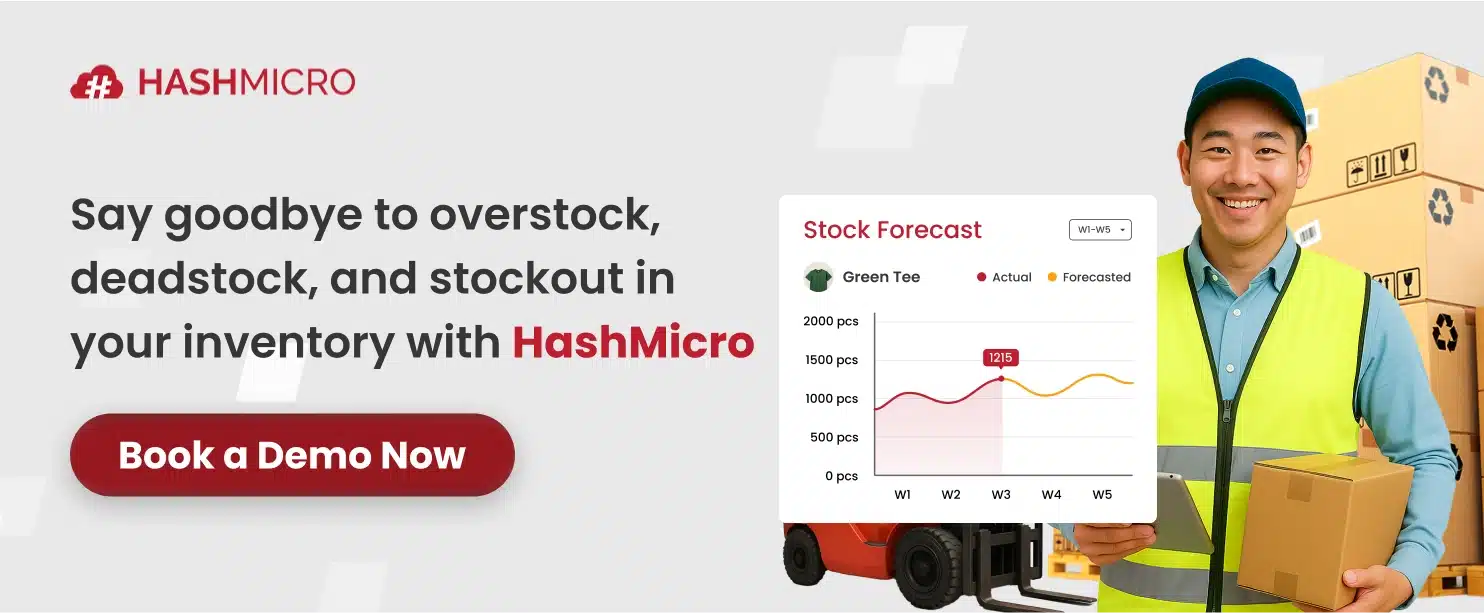Inventory is an essential part of the retail business. Companies must be able to maintain inventory levels so that they are not excessive and also understaffed. When there is too much inventory, of course, the funds spent are also primarily due to an increase in several costs such as store operations and storage costs. This is where the stock management system steps in.
A lack of stock can cause lost sales and reduce customer satisfaction. Shoppers are often disappointed when you don’t have what they’re looking for, and of course, you don’t want to disappoint a customer. Minimizing errors and succeeding in inventory management requires the right stock management system with an inventory software to maintain business continuity.

Table of Content:
Table of Content
What is Stock Management?
Stock management involves ordering, storing, tracking, and monitoring stock levels. It applies to every item a business uses to produce its products or services, from raw materials to finished goods. A POS system can support stock management by providing real-time inventory updates and streamlining the tracking process.
The main objective of stock management is to have the right amount of stock for sale at all times. In addition, it aims to strike a balance between maintaining sufficient inventory levels to fulfill customer demand and avoiding excess stock that ties up valuable resources.
Why is Stock Management Important?
Stock management plays a vital role in ensuring efficient functioning within retail operations. Proper retail inventory management enables businesses to maintain optimal inventory levels, preventing stockouts or excesses that can have significant financial implications. By carefully monitoring stock levels and demand patterns, businesses can accurately forecast their end-to-end processes, minimizing the risk of shortages or overstocking.
Furthermore, efficient stock management enhances customer satisfaction by guaranteeing timely order fulfillment and reducing delivery lead times. It also enables businesses to optimize their cash flow by avoiding the unnecessary allocation of funds to stagnant inventory. Ultimately, businesses can maximize profitability by implementing robust stock management practices, such as a stock management software.
Benefits of a Stock Management System
Unexpected challenges spread throughout the retail supply chain, but there are many ways to overcome them. As businesses continue to evolve and expand, the importance of implementing a robust stock management system becomes increasingly evident. The benefits of implementing stock goods software that retail businesses can get are:
1. Knowing which are the profitable and unprofitable product
Knowing which products sell the most will allow you to invest in the most profitable ones. Success in retail requires you to support wisely by buying the correct amount to keep sales going and prevent out-of-stock. A dedicated inventory management system will help identify fast and slow-moving products. Then, the business can use that information to reallocate its budget to invest in profitable outcomes.
2. Automatic and easy management with a stock management system
Inventory management software for retail will help you see products out of stock, compare stock with those for sale, and automatically reorder before they run out. Automated reporting also helps identify problems quickly. Calculating demand manually results in inaccurate predictions of goods that sell well and miscalculations when buying the stock of goods.
Therefore, there was a buildup of dead stock in the warehouse. Inventory applications help automate customer demand calculations and order goods in the correct quantity. In addition, you can also use retail management software to manage retail businesses automatically.
3. Access accurate and real-time information with the stock management system
Real-time notifications and accurate information help you act quickly and never miss any sales opportunities. Modern systems allow you to run quick stock reports to get updates on what’s going on. As a result, businesses can identify patterns, evaluate product popularity, and adjust their strategies accordingly. In addition, You can compare stocks and reorder stocks automatically.
4. Maintain stock level optimization
A stock management system for retailers will lead to efficient reordering. Accurate reports will tell you what’s available, what’s moving fastest, and what’s running low. It helps make an informed buying decision.
In addition, one of the problems that companies often face is the loss or theft of goods. The inventory system helps warehouse staff or company employees track the movement and stock-taking of goods. In this way, retailers can minimize theft and loss.
5. Customer satisfaction
Proper inventory management leads to better customer service. You can track orders shipped, monitor inventory levels, and identify wrong shipments. How professional a retail business is can also be seen from its warehouse applications.
Imagine if the customer doesn’t get the item they need because they are running out of stock. This happens repeatedly. Of course, it will have an impact on the decline in the image of the business. Gaining customer trust gives you huge benefits in a competitive market.
6. Streamline reordering process
A stock management system simplifies and automates reordering, saving businesses time and effort. By analyzing historical sales data, inventory levels, and lead times, the system can automatically generate accurate reorder points and trigger purchase orders when the stock reaches predefined thresholds.
This proactive approach to reordering ensures that businesses maintain optimal stock levels, prevent stockouts, and minimize the risk of excess inventory. Streamlining the reordering process improves operational efficiency and reduces the likelihood of missed sales opportunities and costly expedited shipping.
7. Reduce costs
Effective stock management can significantly reduce businesses’ costs. By preventing stock-outs and overstocking, companies can minimize the expenses associated with rush orders, storage, and holding excessive inventory.
Additionally, the system’s accurate demand forecasting and inventory optimization capabilities help identify cost-saving opportunities, such as bulk purchasing and supplier negotiations.
Conclusion
A stock management system is a powerful tool that brings numerous benefits to the retail industry, such as streamlining operations. However, it is essential to note that effective inventory management requires a strategic approach to operate optimally. Inventory management system are not only used by large companies but also by small and medium-sized businesses.
With a comprehensive stock management system in place, retailers can easily navigate the complexities of inventory management and adapt to evolving market demands. Choose the best Warehouse Management System that suits your business, such as HashMicro’s that integrates all your stock management needs.
Integrating the Purchasing System with the stock system will help you plan inventory costs, control the procurement of goods, and better manage orders.






















































